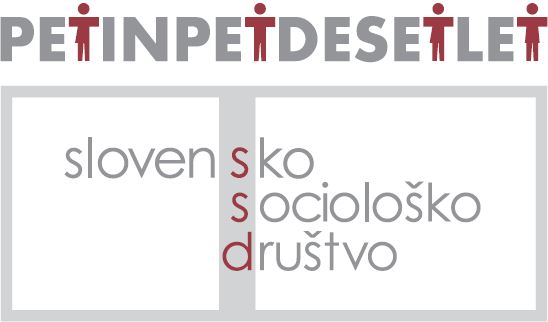Social Science Forum 90 (XXXV)
Importance of Family Caring Activities in the Everyday Life of Young People Living in Ljubljana and the Surroundings
Valentina Hlebec
ABSTRACT: Young family carers are people who in their everyday lives provide care to members of their family. This means they do things, often on a regular basis, which are usually associated with adults. In Slovenia, young carers are an invisible population and a neglected research topic. The data from Youth in Ljubljana 2017 give us the first insights into the characteristics of young carers in Slovenia. The dependent variable in our regression analysis is the subjective meanings young people attribute to caring activities within the family. Family caring activities are more important to young women, households with siblings, and religious children. Greater importance is associated with both increasing age and permanent residence in Ljubljana. Moreover, the higher importance of family caring activities is associated with lower school success.
KEY WORDS: young family carers, Ljubljana, regression analysis
>> Download
Towards a Critique of Mediatisation: Political Communication of Slovenian Political Parties and their Media Relations
Jernej Prodnik
ABSTRACT: In the last decade, mediatisation has established itself as a key approach in media and communication studies. Its goal is to explain the vast transformations in social relations due to the increasing power of the media. I provide a theoretical and empirical critique of the institutionalist (strong) approach to mediatisation. Empirically, the article is based on semi-structured interviews with representatives of Slovenian political parties. As is noted, the main problem of mediatisation is that it perceives the power of the media abstractly. Even though holism is advocated, authors narrowly focus on the media, without embedding it in the social totality. For a critique of the ontological, epistemological and theoretical failures, I build the article on media sociology and the political economy of communication.
KEY WORDS: mediatisation, political communication, media logic, political parties, media sociology, political economy of communication
>> Download
Representations of slovenian identity and analysis of the national(istic) discourse in the slovenian magazine kaplje
Ksenija Šabec
ABSTRACT: The article deals with the position held by the Slovenian magazine Kaplje [Drops] in the Slovenian collective memory. Published in the town of Idrija between 1966 and 1972, i.e. in the period of party liberalism in former Yugoslavia, Kaplje was a publication from the periphery that ‘swam against the current’, although its role was almost entirely ignored. The article’s aim is therefore to determine how the magazine’s contributors represented and (re)produced Slovenian identity and its constitutive elements, and which forms and strategies of national(istic) discourse were used. The methodology is based on a critical discursive analysis of selected articles that touch on the above-mentioned themes from all 26 issues of the magazine, including a special issue released upon the twentieth anniversary of the date the magazine voluntarily came to an end.
KEY WORDS: Slovenian identity, nationalism, discourse, Kaplje magazine, Idrija
>> Download
Revitalization Paths Of Urban Centers: Tentative Observational Comparison Of Two Cities – Ljubljana And Zagreb
Jelena Zlatar Gamberožić
ABSTRACT: In this paper, a comparison is made between two post-socialist countries (Slovenia and Croatia), namely, their capital cities (Ljubljana and Zagreb). The research aims to establish the main principles and difficulties of revitalisation in each city and how successfully they have moved from socialist to democratic urban planning. The research hypothesis is that Ljubljana has been comprehensively revitalised according to relevant revitalisation guidelines, whereas in Zagreb the revitalisation has been partial and largely affected by the interests of investors and their political partners. The study uses semi-structured interviews conducted with various spatial planning experts and pertinent documentation. It confirms the hypothesis, examines successes and failures experienced in both cities’ transition process, and reflects on general problems of urban planning and revitalisation in post-socialist countries.
KEY WORDS: urban revitalisation, urban planning, post-socialist countries, Zagreb,
Ljubljana
